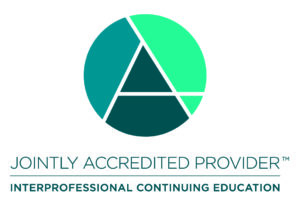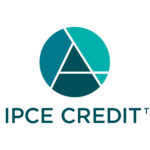Praxis Continuing Education and Training
DNA-V for Young People
Louise Hayes, PhD & Joseph Ciarrochi, PhD
16 CE credits available
Please read the complete course information below prior to registering.
Target Audience:
DNA-V will be useful to virtually anyone whose work involves helping young people reach their full potential, including clinicians, mental health professionals, teachers, coaches, behavior analysts, social workers, and others.
No previous experience with DNA-V or ACT is required. This course introduces the DNA-V model in a practical, easy-to-follow way and gives members the skills, knowledge, and tools to begin using it with young clients no matter their therapeutic background. This is a beginner-level activity.
Schedule: (16 hours total)
1. Introduction to the DNA-V model, the basics of the DNA-V disk, introduction to functional contextualism, how to do a case conceptualization (123 Min)
2. Definition of “values”, the difference between values and outcomes, the benefits of values work with young people, the 6 ways to well-being, the benefits of prosocial values in young people (138 Min)
3. What are noticer skills, how to normalize a client’s feelings, ways to help young people build skills for dealing with big emotions (130 Min)
4. What is the adviser and how it develops, 5 steps to working with the adviser with young people, Relational Frame Theory (RFT) (131 Min)
5. What is the discoverer, how to help young people develop discoverer skills, how to use the willingness scale (136 Min)
6. The meaning of self-view in the context of DNA-V, how to help young people move from a fixed to a flexible self-view (82 Min)
7. The meaning of social view in the context of DNA-V, how to help young people build skills to deal with bullies and other difficult people, how to help young people build friendship skills (100 Min)
8. Parent values, how to work with relationship problems between a child and parent, how to bring parents alongside in helping young people (120 Min)
Overall Objectives:
At the conclusion of this course, participants will be able to:
1. Describe an overview of the DNA-V model
2. Define functional contextualism and why it is so important for ACT work
3. Define values in a way that is consistent with RFT and the ACT models
4. Describe three ways to perform a values intervention with young people
5. Describe noticing as a class of behaviors
6. List and apply three noticing interventions with young people
7. Describe advisor as a class of behaviors
8. List and apply three advisor interventions with a young person
9. Demonstrate how development impacts discoverer behaviors
10. Describe how a young person can track their behaviors
11. Describe what “self-view” is in DNA-V
12. Discuss how to assess the “self” in a young person
13. Describe what “social view” is in DNA-V
14. Discuss how to assess the social view a young person has
15. Use DNA-V with parents, and with parent-teen dyads
Grievance Procedures for CE Activities
Should a participant in the course be unsatisfied with the course, the participant should immediately contact our customer support team to file a grievance. Within five days, a customer support team member will contact the participant by email and/or phone and attempt to resolve the issue.
We will investigate and assess the issue from the perspective of the participant and every effort will be made to resolve the issue. If the issue is not resolved to the satisfaction of the participant, the participant will be offered a refund per the Refund and Cancellation Policy guidelines.
To file a grievance, please contact us at courses@praxiscet.com.
ADA Accommodations
To request accommodations for disabilities, please contact Praxis Continuing Education at courses@praxiscet.com.
Contact Information:
The DNA-V for Young People team can be contacted at courses@praxiscet.com
Praxis Continuing Education
5674 Shattuck Avenue
Oakland, CA 94609 USA
CE Information:
This non-live internet activity is sponsored by Praxis Continuing Education and Training and is approved for 16 CE Hours by the organizations listed below. Praxis CET maintains responsibility for the program with the CE approvals outlined below:

Joint Accreditation: In support of improving patient care, Praxis Continuing Education and Training, Inc. is jointly accredited by the Accreditation Council for Continuing Medical Education (ACCME), the Accreditation Council for Pharmacy Education (ACPE), and the American Nurses Credentialing Center (ANCC), to provide continuing education for the healthcare team.

IPCE: This activity was planned by and for the healthcare team, and learners will receive 16 Interprofessional Continuing Education (IPCE) credits for learning and change.
Nursing: Praxis Continuing Education and Training, Inc. designates this activity for a maximum of 16 ANCC contact hours.
Physicians: Praxis Continuing Education and Training, Inc. designates this enduring material activity for a maximum of 16 AMA PRA Category 1 Credits™. Physicians should claim only the credit commensurate with the extent of their participation in the activity.

Psychologists: Continuing Education (CE) credits for psychologists are provided through the co-sponsorship of the American Psychological Association (APA) Office of Continuing Education in Psychology (CEP). The APA CEP Office maintains responsibility for the content of the programs.
Social Workers: As a Jointly Accredited Organization, Praxis Continuing Education and Training, Inc. is approved to offer social work continuing education by the Association of Social Work Boards (ASWB) Approved Continuing Education (ACE) program. Organizations, not individual courses, are approved under this program. Regulatory boards are the final authority on courses accepted for continuing education credit. Social workers completing this course receive 16 clinical continuing education credits.
Drug and Alcohol Counselors: This course has been approved by Praxis Continuing Education and Training, Inc. as a NAADAC Approved Education Provider, for 16 CE hours. NAADAC Provider #165310, Praxis Continuing Education and Training, Inc. is responsible for all aspects of its programming.

National Counselors: Praxis Continuing Education and Training, Inc. has been approved by NBCC as an Approved Continuing Education Provider, ACEP No. 6759. Programs that do not qualify for NBCC credit are clearly identified. Praxis Continuing Education and Training, Inc. is solely responsible for all aspects of the programs.
Behavior Analysts: Praxis CET is an approved BACB ACE Provider # OP-17-2718.
NY Counselors: Praxis Continuing Education and Training, Inc. is recognized by the New York State Education Department's State Board for Mental Health Practitioners as an approved provider of continuing education for licensed mental health counselors #MHC-0198.
NY Social Workers: Praxis Continuing Education and Training, Inc. is recognized by the New York State Education Department's State Board for Social Work as an approved provider of continuing education for licensed social workers #SW-0467.
NY Psychologists: Praxis Continuing Education and Training, Inc. is recognized by the New York State Education Department's State Board for Psychology as an approved provider of continuing education for licensed psychologists #PSY-0002.
NOTE: Many state boards accept offerings accredited by national or other state organizations. If your state is not listed, please check with your professional licensing board to determine whether the accreditations listed are accepted.
CE Course Launch Date: 6/2021
Expiration Date/Next scheduled review date: 6/2024
Disclosure of Relevant Financial Relationships
Praxis Continuing Education and Training is responsible for the content, quality, and scientific integrity of all CE activities certified for credit. When an educational activity is offered for medical (CME), Nursing (ANCC), and/or Psychology (APA) continuing education credit, participants must be informed as to the source, amount, nature, and disposition of any funding used to support the activity, whether in the form of educational grants, cash contributions, or in-kind contributions. Individuals in a position to influence course content must also disclose whether they have one or more relevant financial relationships with ineligible companies.
We define ineligible companies as those whose primary business is producing, marketing, selling, re-selling, or distributing healthcare products used by or on patients. There is no minimum financial threshold; individuals must disclose all financial relationships, regardless of the amount, with ineligible companies. We ask that discloses are made regardless of whether the individual views the financial relationships as relevant to the education. For more information on the Standards for Integrity and Independence in Accredited Continuing Education, please visit accme.org/standards.
All those in a position to control the content of an education activity are asked to disclose any relevant financial relationships they have with any ineligible companies.
There is no commercial support for this activity.
None of the planners or presenters for this educational activity have relevant financial relationship(s) to disclose with ineligible companies whose primary business is producing, marketing, selling, re-selling, or distributing healthcare products used by or on patients.
How to Obtain Your CE Certificate:
After completing the course, please follow these steps to access your course evaluation, post-test (when applicable), and CE certificate. To receive credit, you must complete the course in full, pass the post-test with an average score of 80% or higher, and complete the course evaluation. No partial credit will be awarded. Please read through all of the instructions below before proceeding.
- Once you have completed all the modules and have taken the post-test for each module, go to the “Evaluation” tab on the course menu.
- If you have passed the post-tests with an average score of 80% or higher, the course feedback evaluation will be made available to you on the Evaluation page. You will be allowed to retake each post-test only once if you do not pass with an 80% or higher average.
- After submitting the feedback evaluation, a button will appear that will allow you to download your certificate.
We encourage members to submit the feedback evaluation within 3 months of course completion to earn their CE certificate.
Technical Requirements:
In order to complete this course, attendees will need:
- A computer with a monitor, keyboard, and a mouse or a mobile device/tablet
- Speakers/headphones: either built‐in to your computer/device or external (plugged into your computer)
- An internet connection, either wired or wireless. A minimum connection speed of 3 megabits is required to stream clear, standard definition video.
- The course is supported on most up-to-date internet browsers (Google Chrome, Safari, Firefox, Microsoft Edge, Brave, etc.)
- A PDF viewer such as Adobe Acrobat Reader
- An email address
- [Optional] A mixed media player (such as iTunes/Windows Media Player) to listen to downloadable audio exercises. These are also available within the members area so this is not a strict requirement.
- [Optional] A printer or access to a printer (to print any of the PDFs, if desired)
- [Optional] A Facebook account for access to the DNA-V for Young People community group
References:
1) Williams, K. E., Ciarrochi, J., & Heaven, P. C. L. (2015). Relationships between valued action and well-being across the transition from high school to early adulthood. The Journal of Positive Psychology, 10(2), 127–140.
2) Ciarrochi, J., Sahdra, B. K., Yap, K., & Dicke, T. (2020). The Role of Nonattachment in the Development of Adolescent Mental Health: a Three-Year Longitudinal Study. Mindfulness, 11(9), 2131–2139.
3) Cohen, G. L., & Sherman, D. K. (2014). The Psychology of Change: Self-Affirmation and Social Psychological Intervention. Annual Review of Psychology, 65, 333–371.
4) Stinson, D. A., Logel, C., Shepherd, S., & Zanna, M. P. (2011). Rewriting the self-fulfilling prophecy of social rejection: self-affirmation improves relational security and social behavior up to 2 months later. Psychological Science, 22(9), 1145–1149.